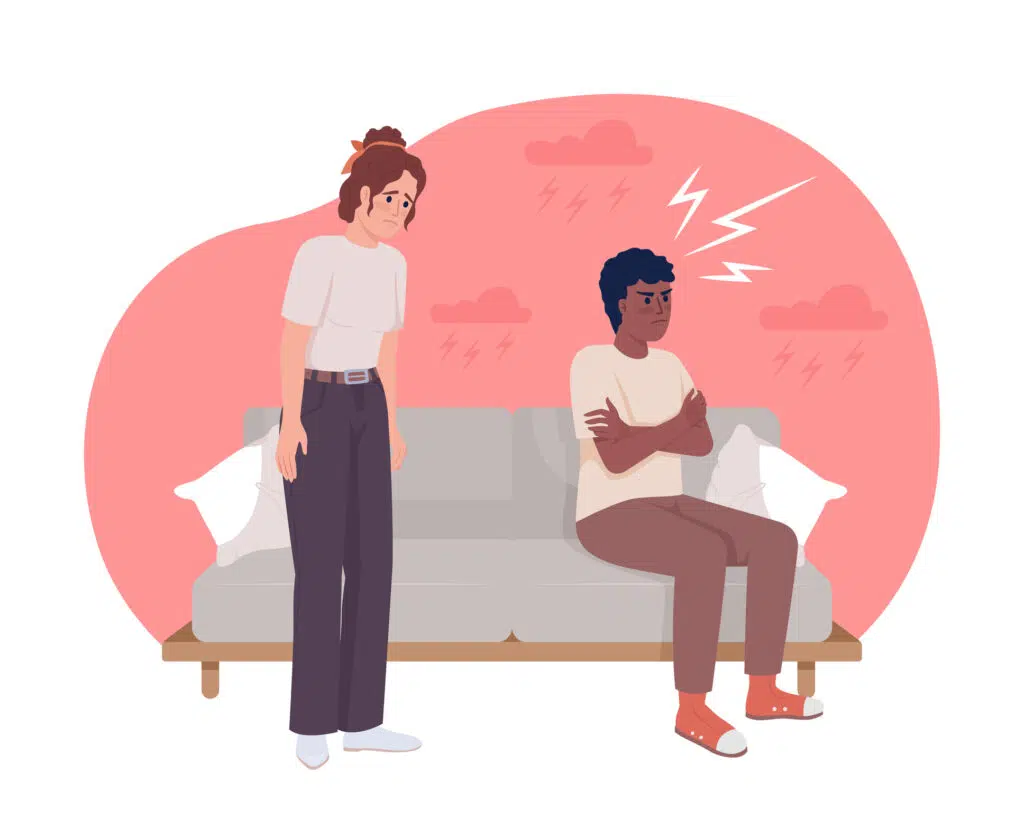Living With OCD

Obsessive compulsive disorder (OCD) is very common. According to the American Psychiatric Association, more than two million people are diagnosed with a form of OCD every year. The condition is characterized by obsessive thoughts and behaviors that are all-consuming and disrupt a person’s quality of life.
Whether it’s compulsive cleaning and organizing, or you find yourself plagued with troubling thoughts that seem out of your control, OCD doesn’t have to take over your life. At Thriving Mind Psychology, our mental health specialists can help you manage your condition and bring your OCD under control.
Symptoms and risk factors of OCD
Most people associate OCD with repetitive and compulsive behaviors, such as constant hand washing, cleaning, counting, or checking to make sure the gas has been turned off, all of which are common symptoms. But OCD can also cause intrusive and unwanted thoughts that lead to stress and anxiety.
According to the National Institute of Mental Health, obsessions are defined by unwanted mental images, thoughts, and urges that can’t be controlled. Compulsions are the behaviors that someone with OCD might engage in as a result of the obsessive thoughts.
Most people experience troubling thoughts from time to time and might feel the need on occasion to check that the doors have been locked or that the oven has been turned off, but people with OCD spend at least an hour or more a day doing such things. They spend so much time thinking about such things or doing such things that their work, school, and personal life suffers as a result.
Tips for dealing with OCD
Obsessive compulsive disorder doesn’t go away on its own or fade over time, so it’s important to see a mental health professional as soon as you start exhibiting symptoms. Most people are diagnosed around age 19, but symptoms can manifest later as well. We offer a number of OCD treatment options at Thriving Mind Psychology, such as:
- Group therapy
- Psychotherapy
- Cognitive behavioral therapy
- Neurofeedback
In addition to working with a mental health professional to manage your symptoms, there are also a few things you can do to manage anxiety and stress levels when you’re dealing with OCD. Be sure to get plenty of sleep, and avoid stimulants, such as caffeine, which can trigger anxiety or make it worse. You should also eat a healthy, well-balanced diet. And you should also stay physically active, even if it’s just a 15-20 minute walk in your neighborhood after work or during your lunch break.
Furthermore, find an activity that helps you relax, whether it’s reading, painting, or writing your thoughts and feelings in a journal. There is no one-size-fits-all treatment for OCD, but the important thing is to seek help to find a plan that works best for you.
If you have OCD or want to see if you do, we can help. To learn more, book an appointment online or over the phone with Thriving Mind Psychology today.

How to Move On After a Friendship Breakup
Friendship breakups can sting just as much as a romantic breakup. After all, you’re experiencing a loss of shared history and an understanding of each other that can leave you feeling lonely and isolated. Not all friendships are forever, but moving on from the loss of a friendship does take time and some self-compassion.

Signs You’re in a Toxic Relationship
A toxic relationship can chip away at your well-being and happiness. Toxic partners can be manipulative and charming, making it difficult to recognize the signs that you’re in a toxic relationship. You deserve to be in a supportive and healthy relationship.

10 Common Marriage Reconciliation Mistakes to Avoid After Infidelity
Infidelity can leave couples devastated. If you’ve been affected by infidelity and want to salvage your relationship, rebuild trust, or make a tough decision, keep reading for 10 common reconciliation mistakes to avoid after infidelity.

Survey: 72% of Americans are Stressing About the Upcoming Presidential Election
Political viewpoints in the U.S. have always been contentious, but is the impact of politics in the United States making it difficult for people to live their everyday lives? With some anticipating another brutal and long campaign season ahead of the upcoming 2024 presidential election, nearly half of Americans say politics is negatively impacting their mental health.




